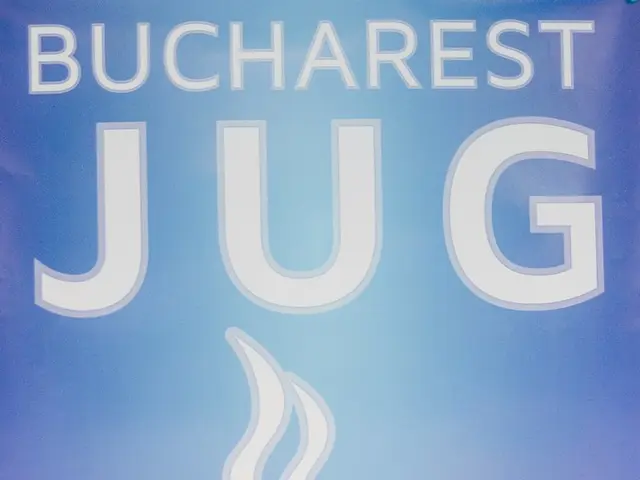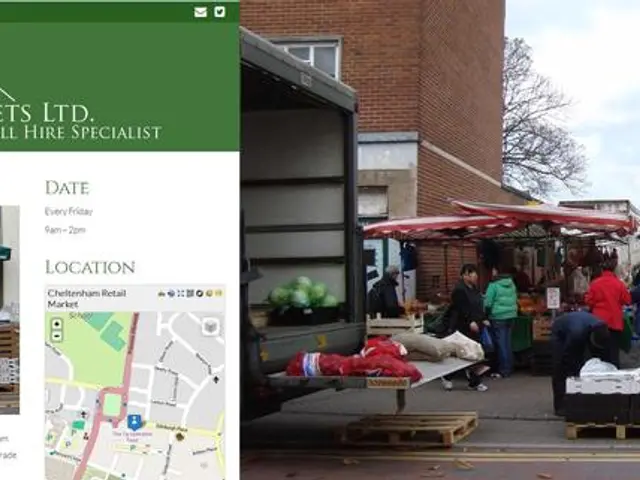Trump intends to launch a colossal Initial Public Offering for a staggering $500 billion
The Trump administration's plans to take Fannie Mae and Freddie Mac, two government-controlled mortgage financiers, public by the end of 2021 have sent ripples through the financial world. The anticipated initial public offering (IPO) could potentially bring billions for the U.S. government and continue the rally for the stocks, but it also raises concerns about mortgage rates, government guarantees, shareholder protection, and market competition.
Over the past year, both companies' stocks have seen significant growth. Fannie Mae's stock has increased by around nine times, while Freddie Mac's has risen by about eight times. This surge in stock prices, despite the companies not being listed on major exchanges like the New York Stock Exchange, is a testament to the speculation surrounding the IPO and potential merger.
Star investor Bill Ackman advocates for a merger of both companies to reduce costs and increase efficiency, which could lower financing costs and make the market more competitive. However, critics fear that a stronger privatization could increase mortgage rates, which would be a blow to millions of American homeowners.
Experts warn that if the IPO weakens markets' confidence in a federal government backstop, lenders and investors would demand higher yields for the increased risk, driving mortgage rates up. This could worsen affordability and further restrict access to home loans, especially during economic downturns.
Fannie Mae and Freddie Mac currently operate under conservatorship with implicit government guarantees that help maintain liquidity and stability. Moving to public ownership without a clear federal backstop or regulatory mechanism may reduce market confidence and increase volatility in the housing finance system.
Without explicit clarity on downside protection, risk management approaches, and the roles of these GSEs, shareholders may face increased uncertainty. The significant U.S. Treasury stake and capital recapitalization needs complicate control, governance, and investor confidence.
Some propose merging Fannie and Freddie to lower costs and improve operational efficiencies, which might reduce mortgage rates and government oversight expenses. However, IPO-driven privatization could also shift their market roles, potentially affecting competition dynamics in secondary mortgage markets.
In summary, the IPO's success hinges on a carefully designed framework balancing recapitalization, regulatory clarity, and mechanisms ensuring long-term market stability to avoid disruption in mortgage availability, affordability, and investor confidence. The prospect of fresh capital has caused the stocks of both companies to soar recently, but the risk of getting burned by investing in Fannie Mae and Freddie Mac is high due to the uncertainty surrounding the details of an IPO and its potential non-occurrence.
[1] Mortgage Banking Association. (2021). Fannie Mae and Freddie Mac Reform. Retrieved from https://www.mba.org/advocacy-and-policy/housing-finance-reform
[2] Federal Housing Finance Agency. (2021). Fannie Mae and Freddie Mac. Retrieved from https://www.fhfa.gov/AboutUs/Strategy/Pages/Fannie-Mae-and-Freddie-Mac
[3] Ackman, B. (2021). Pershing Square Capital Management. Retrieved from https://www.pershingsquareholdings.com/
[4] National Association of Realtors. (2021). Fannie Mae and Freddie Mac Reform. Retrieved from https://www.realtor.org/news-research/research/fannie-mae-and-freddie-mac-reform
[5] Congressional Budget Office. (2021). Fannie Mae and Freddie Mac Reform. Retrieved from https://www.cbo.gov/publication/56257
- The anticipated initial public offering (IPO) of Fannie Mae and Freddie Mac could potentially bring billions for the U.S. government, given their current stock prices have risen significantly over the past year when both companies were not listed on major exchanges.
- The IPO-driven privatization of Fannie Mae and Freddie Mac raises concern about mortgage rates, as experts warn that a weakened market confidence in a federal government backstop may drive mortgage rates up, worsening affordability and restricting access to home loans.




